The Boy Scouts In Russia - [12]
"All right. But will you be safe yourself? Oughtn't you to come with me, Boris?"
"Oh, they won't do anything to me! I'm only a boy, you see. They'll never think that I could be dangerous. In with you, now! We can't keep the soldiers out. I don't want to give them an excuse for burning the place down, and they'd do it in a minute if there was any resistance." CHAPTER VI
Fred found the secret passage much less confusing than he had thought it likely to be. As soon as he had stepped in, the panels slid back into place, and the passage was immediately dark. But Boris had had time to find an electric torch for him, and had told him where to find another-or two or three, for that matter-when that was exhausted.
"We've always kept them there in case of emergencies," he had explained.
So Fred had felt assured of a supply of light, which was the one absolutely necessary thing if, as was entirely possible, the German soldiers stayed in the house for any time. One other thing, of course, was necessary; food and drink. And that, too, he knew where to find. Boris had told him of a store of compressed foods, and of fresh water, piped into this amazing passageway from the outer entrance, far beyond the limits of the gardens and grounds of the house.
The first thing Fred did was to switch on the light of his torch and inspect the warren in which he had found sanctuary. It was not at all the musty, bad smelling place he had expected it to be. The walls had been plastered and stained a dull grey, which did not reflect the light from his torch appreciably. The arrows appeared, as Boris had said they did, at frequent intervals.
"Not much of a secret." That was Fred's first thought. "But it needn't be. The men who worked in here are the ones the family can trust absolutely, I suppose."
It gave Fred a certain thrill to feel himself in touch with such things, to know that he belonged to such a family as the Suvaroffs, capable of inspiring such devotion in its retainers-which, though Boris regarded it as a matter of course, seemed a great thing to Fred, with his American upbringing.
"What a piece of luck!" he reflected. "Imagine my stumbling on such a splendid fellow as Boris! If it hadn't been for all this trouble, I might never have known I had a cousin! And he's the sort of cousin I call worth having! He amounts to something-and I don't believe he's as old as I am. Well, I've got to show him that an American scout can keep up his end! I'll try to play the game with him."
It made up for all the trouble he had had since he had first seen his uncle. He was more puzzled than ever, after what Boris had told him, to account for the behavior of Mikail Suvaroff.
"I'll bet there's some explanation," he said to himself. "I certainly hope so! Seeing Boris makes me inclined to like these Russian relatives a whole lot, and I'd like to think that Uncle Mikail could square himself somehow. He's got a whole lot to make up for, of course."
Though he did feel that very strongly, he was able now to frame a thought that had come to him more than once after he had become certain that it was Prince Suvaroff who had caused his arrest. And that was that Suvaroff had seemed far too big and important a man to do a small, petty thing.
"He's got a wrong idea of me, some way," Fred decided. "He has heard something, or made up his mind to something that isn't so. Well, I hope I get back to Russia and stay out of jail long enough to find out what was wrong. Perhaps this war will make a difference, especially if I'm lucky enough to be able do something for 'Holy Russia'."
Fred moved along quietly while he was thinking of the extraordinary sequence of events that had brought him to where he now was, flashing his light on the arrows, and looking for the double mark that would show him he had reached the spot of which Boris had told him. But when he got there he had no need of any sign, for he could hear voices distinctly on the other side of a very thin wall. Boris was speaking.
"I'm so sorry, Herr Hauptmann," Boris was saying, in faultless German. "I did see some of the peasants chivying a fellow down below. And I did go out, of course, in my car, to see if I could help him. I got him away from them. But he didn't come all the way back. He wanted to go on, and it's not just the time I should choose for entertaining guests. So I didn't urge him to stay."
"I'm sorry to seem to doubt your word. In fact, Prince, I don't," said a rumbling voice, that of the German captain Boris had been addressing, as Fred could guess. "But was this person you rescued so-chivalrously-an Englishman?"
"I really don't know, Herr Hauptmann. He might have been. Or an American. One or the other, I should think."
"Clever Boris!" thought Fred. "He'll tell him some truth and some fiction! He has got to deceive him, of course-that's war."
"I have reason, Prince, to think that he was an English spy," the captain went on. "You will allow my men to make a search? And, by the way, I shall be sorry to take away your servants, but my orders are to arrest and send to detention camps every man of military age I find here."
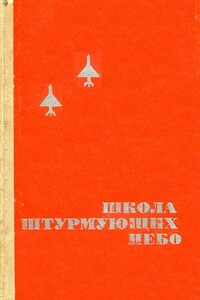
Книга «Школа штурмующих небо» — это документальный очерк о пятидесятилетнем пути Ейского военного училища. Ее страницы прежде всего посвящены младшему поколению воинов-авиаторов и всем тем, кто любит небо. В ней рассказывается о том, как военные летные кадры совершенствуют свое мастерство, готовятся с достоинством и честью защищать любимую Родину, завоевания Великого Октября.
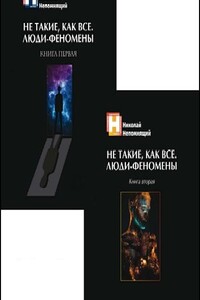
Феномен человека и загадка его происхождения волновали людей с глубокой древности. Но само понятие «феномен человека» вел в научный оборот известный французский мыслитель Пьер Тейяр де Шарден, который так и назвал одну из своих главных книг. Кроме своей целостности человек несет в себе черты уникальности: хоть все мы люди, каждый из нас неповторим, и случается, что особенности отдельных людей носят столь уникальный характер, что о них говорят не иначе как о чудо-людях, необыкновенном порождении человеческой природы.

В книге рассказывается история главного героя, который сталкивается с различными проблемами и препятствиями на протяжении всего своего путешествия. По пути он встречает множество второстепенных персонажей, которые играют важные роли в истории. Благодаря опыту главного героя книга исследует такие темы, как любовь, потеря, надежда и стойкость. По мере того, как главный герой преодолевает свои трудности, он усваивает ценные уроки жизни и растет как личность.
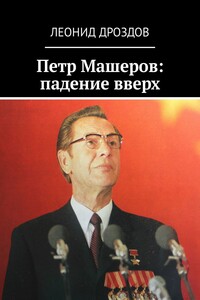
Рожденный в день, которого не было. Сын «врага народа». Трус, сдавшийся врагу. Сталинист, поправший устав партии. Предатель, ставший героем. Идеал руководителя. Человек, объединивший нацию. Национальный герой. Партизанский маршал. Старший лейтенант Красной армии. Герой Советского Союза. Герой Социалистического Труда. Семикратный кавалер ордена Ленина. Как говорится, разброс мнений и званий на любой вкус. Это книга о Петре Машерове, первом секретаре ЦК КПБ, который правил в Беларуси более 15 лет.
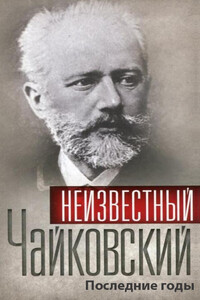
Настоящее издание – попытка приблизить современников к личности и творчеству гениального русского композитора. Здесь описаны события последних пяти лет жизни П.И. Чайковского (1888–1893), когда им были созданы величайшие произведения – оперы «Иоланта» и «Пиковая дама», музыка к балету «Щелкунчик» и Шестая («Патетическая») симфония, которой он впервые дирижировал сам. В книге, основанной на личной переписке Чайковского с братьями Анатолием и Модестом, композитором Сергеем Танеевым, поэтом Константином Романовым, Надеждой фон Мекк и другими, читателям откроется таинственный внутренний мир человека, музыке которого полтора века поклоняется мир и чьи произведения до сих пор являются самыми исполняемыми на земном шаре.
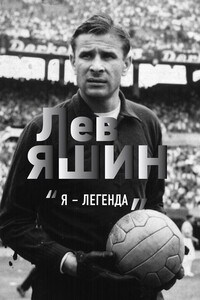
Лев Яшин был абсолютной величиной в мировом футболе. Он стал первым вратарем, получившим “Золотой мяч”, а в 1999 году ФИФА назвала его лучшим вратарём ХХ века. Однако он был не только прекрасным спортсменом, но и выдающейся личностью… Перед вами самая полная биография великого российского футболиста, из которой вы узнаете о его пути, больших победах и горьких разочарованиях.